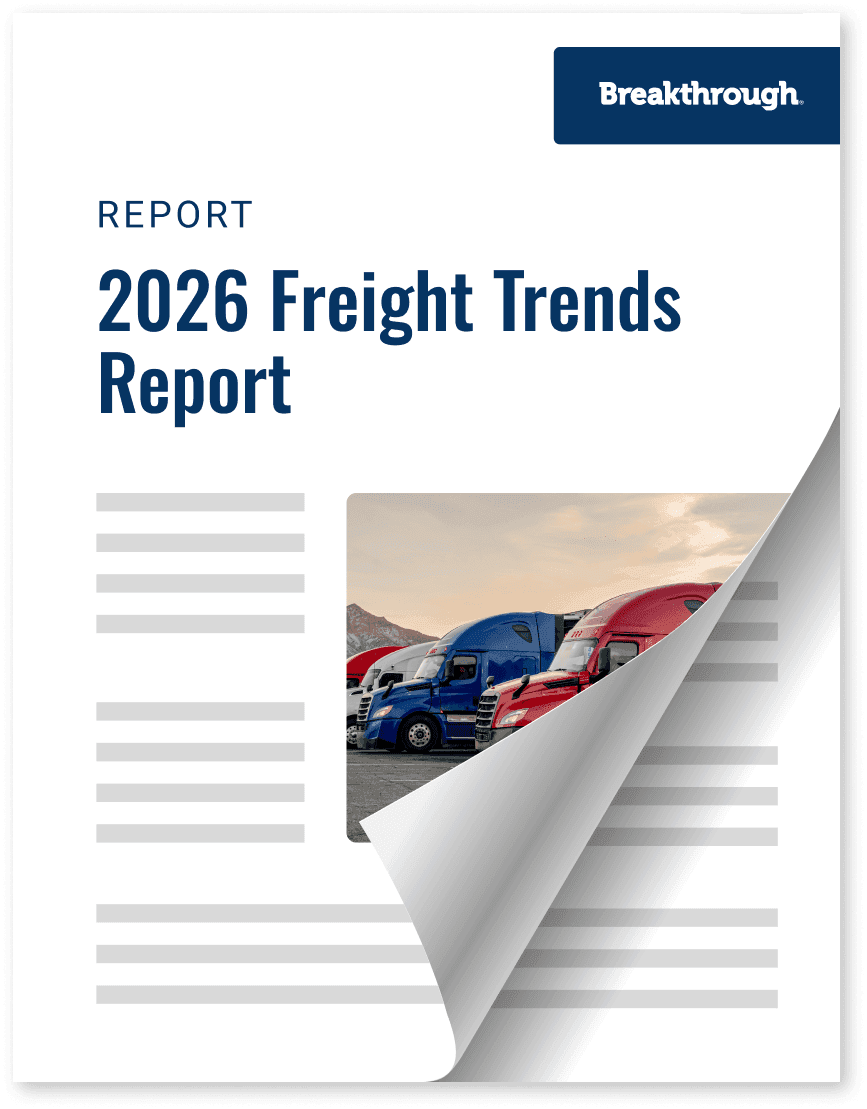2026 Freight Trends Report

Trending
Top Posts
4 min read
October 22, 2025

Share:
Table of contents
Browse the table of contents to jump straight to the part you’re looking for
A zero base rate fuel strategy eliminates the traditional base rate component from fuel surcharge calculations, allowing shippers to reimburse carriers based on actual market fuel prices. This market-based approach provides complete transparency and can reduce fuel costs by up to 20% compared to outdated fuel surcharge programs that rely on 1979 pricing models.
Traditional fuel surcharge programs use a predetermined base rate (typically $1.19-$1.26 per gallon) paired with Department of Energy (DOE) index pricing. However, this 40-year-old system creates distortion in fuel calculations and prevents both shippers and carriers from understanding true operating costs.
Traditional base rate fuel calculations originated during the 1979 oil crisis when the trucking industry was deregulated. The base rate represents the price per gallon of fuel that shippers request carriers to include in their linehaul rates, typically ranging from $0.00 to $2.00.
Base rates based on 1980s fuel prices are irrelevant in today's market, creating several problems:
By moving to a $0 base rate, shippers can completely separate fuel costs from freight costs. This enables full management of fuel used to move goods to market while creating better transparency for both shippers and carriers.
Zero base rate strategies account for every cent of fuel price fluctuation, even when prices drop below typical base rate levels. During volatile periods like the COVID-19 pandemic and OPEC+ crude oil price wars, traditional base rates prevented carriers from receiving accurate fuel reimbursements.
With zero base rate calculations, advancements in fuel efficiency are captured fully. As fleet technology advances and some fleets achieve 8 MPG or higher, traditional base rate systems only allow shippers to capture approximately 50% of savings from MPG adjustments.
Modern Fuel Recovery solutions leverage real-time, lane-level data to calculate fair and accurate fuel reimbursements based on:
This comprehensive approach ensures fair and accurate reimbursements while enabling continuous improvement initiatives that deliver additional savings beyond the first year.
Zero base rate strategies benefit carriers of all sizes by ensuring they are made whole on fuel expenses. The transparency mitigates disputes and creates equitable partnerships focused on service and capacity.
Depending on procurement practices, shippers can capture 70-100% of available savings opportunities through zero base rate implementation. This makes budgeting processes more transparent and accurate.
Fuel Recovery is system agnostic, enabling seamless adoption without disrupting existing operations and providing real-time visibility into fuel costs and consumption patterns.
Achieving operational efficiency and cost savings in today’s dynamic market requires a strategic approach to fuel management. By using a zero base rate strategy, shippers can unlock substantial savings opportunities and enhance budgeting accuracy. With the right tools and strategies, shippers can confidently optimize their operations, reduce costs, and create a resilient supply chain equipped to tackle future challenges.
How does eliminating the base rate affect carrier relationships?
With a zero base rate strategy, carriers continue to be fully reimbursed for their fuel costs through the Fuel Recovery program.
What happens to fuel surcharge programs with zero base rate implementation?
Zero base rate strategies eliminate the need for traditional fuel surcharge programs, replacing them with market-based reimbursement that accounts for actual fuel costs in real-time.
Will carriers increase linehaul rates to compensate for zero base rate changes?
Since fuel prices change daily and carriers cannot adjust rates accordingly, a zero base rate strategy paired with market-based reimbursement creates a fair system that benefits carriers and shippers.
Breakthrough's Expertise
Achieve data-driven cost control, enhance carrier relationships, and ensure real-time fuel reimbursement accuracy.


5 min read
January 22, 2026
Stricter English Language Proficiency rules are impacting driver capacity. See our data on how this is leading to upward linehaul rate pressure in 2026.
Read more
5 min read
January 20, 2026
Understand the latest trends in reefer rates. Our data analysis dissects if the market is in a seasonal swing or facing a true inflection point.
Read more
6 min read
January 13, 2026
Explore the key drivers of the diesel market, from freight demand to refinery cycles, and learn how to manage price volatility with data-driven strategies.
Read more